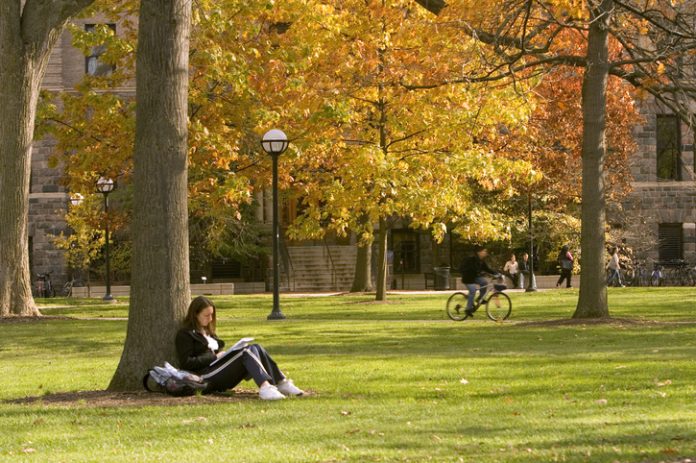Violence at college campuses leads to investigations and additional security measures, Paideia Times reports.
Violent Deaths Shatter Sense of Safety
In the final months of 2022, three incidents—separated by thousands of miles—shook the foundations of campus and student safety.
On October 5, in Tucson, Arizona, University of Arizona Hydrology Professor Thomas Meixner was shot dead on campus. A suspect was apprehended within hours of the shooting—a former graduate student with a troubled past who had been expelled and banned from campus. He’s now in prison awaiting trial for first degree murder and six other felonies.
On November 13, in Moscow, Idaho, four University of Idaho students were fatally stabbed in an off-campus residence. Nearly two months later a suspect was arrested—a doctoral student in criminology at Washington State University. He is currently in jail in Idaho awaiting his next court appearance and facing four charges of first degree murder.
Also on November 13, in Charlottesville, Virginia, three University of Virginia football players were shot to death by a fellow student on board a bus that had just returned to campus from a field trip to Washington, D.C. Two other students were injured in the attack. The suspect was apprehended the morning after the attack and is in prison, charged with three counts of second degree murder. A sense of fear and confusion pervaded classrooms and communities after the attacks.
At the University of Idaho, Assistant Professor Caitlin Cieslik-Miskimen said, “All of my students have been rattled.… All of them are nervous.… It has really unsettled everyone on campus.” After the shooting in Charlottesville, Virginia, UVa Research Associate Benjamin Bernard said the incident “has shattered the idyllic campus mood.”
Security Measures Being Revised in Wake of Violent Crimes
The deaths of seven students and one professor in late 2022 have drawn fresh attention to campus-security procedures and how schools collect and share information about people who might pose a threat.
Schools affected by these killings have already made some changes and are looking at more. The expelled graduate student facing trial in the fatal shooting of a University of Arizona professor had previously been identified as a threat, and colleagues, family, and friends said the university had not done enough to keep the campus safe. In January the school announced it would expand its criminal background checks to include all graduate assistants, along with making other security revisions. An independent, expert review of campus safety is also ongoing.
After the off-campus killings of four University of Idaho students, Dean Blaine Eckles said the school “will not be [scaling back] enhanced security measures.… We are putting every effort into place to create a safe learning experience,” adding that they will maintain a large presence of security on campus. One of the victim’s fathers was critical of the process leading to the arrest of a suspect, saying a “lack of information from the University of Idaho and the local police, which only fuels false rumors and innuendo…further compounds our family’s agony after our son’s murder.”
And the attorney general of Virginia has selected a special counsel to review the circumstances around the shooting deaths of three University of Virginia students, and how the school handled a threat assessment of the suspect prior to the incident. Virginia’s General Assembly is also considering legislation designed to improve how college “threat assessment teams” detect and respond to potential threats.
Underage Suspect in Bomb Threats Against HBCUs
A month-long string of bomb threats against Historically Black Colleges and Universities in early 2022 caused terror, unease, and mental anguish at dozens of schools. After a sprawling federal investigation, the FBI announced in November that one juvenile is believed to be responsible for a majority of the threats.
Due to his age, the suspect has not been publicly identified. Shortly after the announcement, FBI Director Christopher Wray testified on Capitol Hill that the minor will not be charged federally but “charged under various other state offenses, which will ensure some level of restrictions and monitoring and disruption of his criminal behavior.”
At the time of the initial threats, the Biden administration said it would investigate them as a hate crime and that affected schools would be eligible for Education Department grants of up to $150,000 for security upgrades and mental health support. The threats disrupted operations and eroded the sense of safety on campus. “You wouldn’t believe how taxed our mental health resources have been,” said David Wilson, president of Morgan State University.
The FBI’s announcement does bring an end to some of the consternation of HBCU leaders about the pace of the investigation, but there are lingering concerns. FBI officials are still investigating other threats made in February and March of 2022 against HBCUs that are believed to have originated overseas.
Tanya Washington Hicks, a law professor at Georgia State and parent of a student at Morgan State, expressed concern about “what will happen this February” during Black History month. “It’s not like the rhetoric has died down.… Since last February we seem to be in a more agitated state…with politics and our culture wars.”
Originally published by Paideia Times. Republished with permission.
For more on higher education issues read School Reform News.








